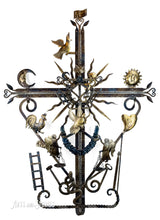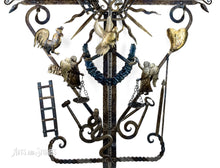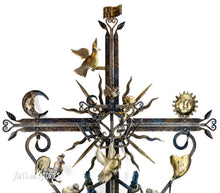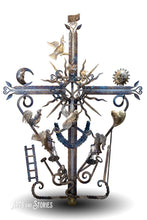
Jose Santiz Ruiz lives in a Tzotzil village high in the mountains of San Cristobal, in the state of Chiapas. In this remote region of Mexico, most of the men are subsistence farmers and the women are known for their incredible traditional weaving. Jose works closely with a small indigenous cooperative called the Taller Arbol de la Vida, or the Tree of Life Workshop. Together they produce beautiful metal works of art to supplement their income and support their families. The team deposits all profits into a common fund that they share.
The people of San Cristobal de las Casas were taught metal working by the Spaniards during the Colonial era, who offered the indigenous the opportunity to learn the skill at the height of the trade’s popularity. Although interest in learning the craft has declined, the cooperative is dedicated to preserving this art by creating decorative and utilitarian pieces alike.
The decorative pieces include roof crosses and Trees of Life. The Tree of Life is a culturally symbolic feature in Mexican tradition and art. These highly symmetrical pieces are adorned with signature ornamental elements like the sun and moon, the four seasons, animals and flowers. Within the strong metal curves of each handmade piece you’ll find a story representing the duality of life and death and how our relationship with the natural world benefits our understanding of the beauty in ourselves and others around us.
The utilitarian pieces include clothing and towel hooks, kitchenware, and mirror frames. They are adorned with silhouettes of the flora and fauna found in their natural surrounding such as the sun, corn, animals and other symbols important to their culture.







